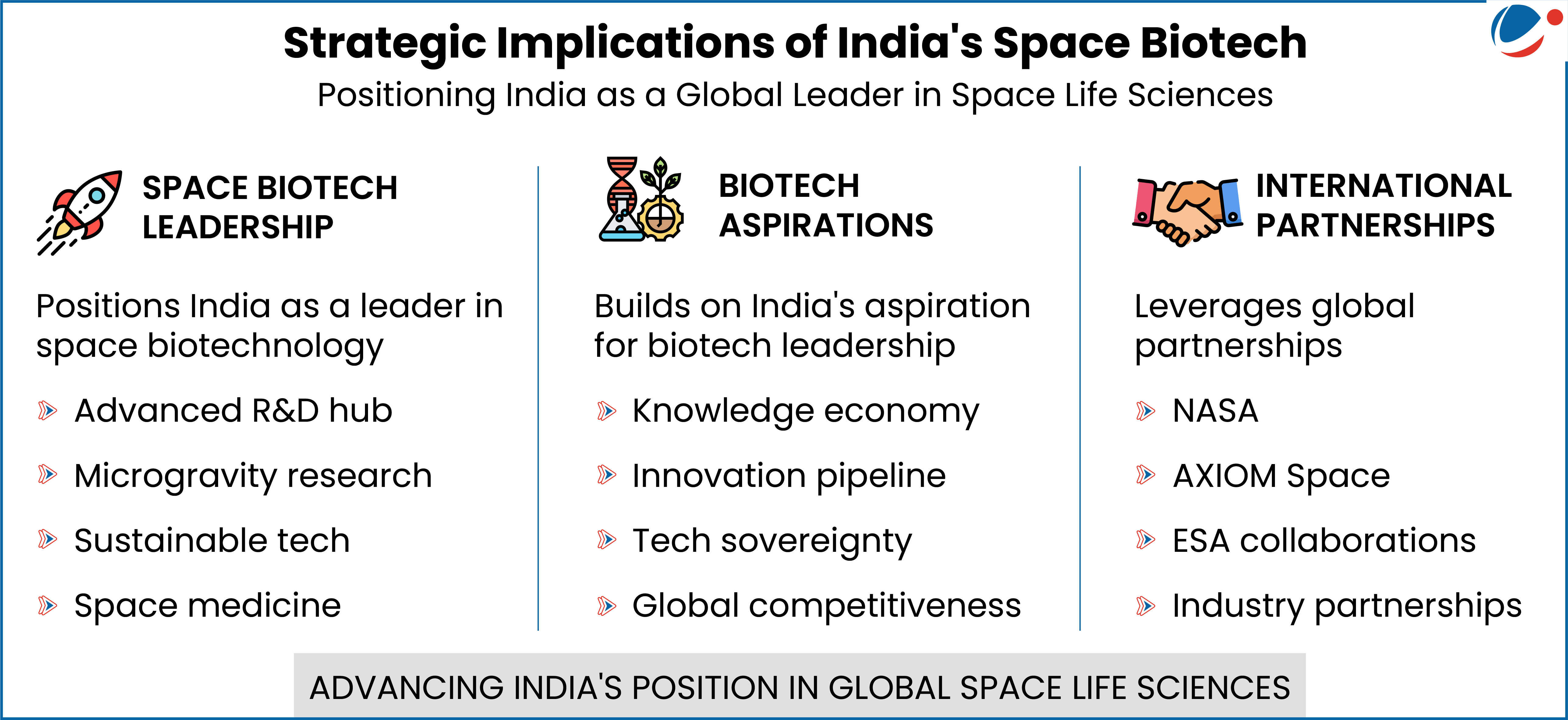Recently, Union Minister of State for Science & Technology announced that India is set to conduct its first-ever biological experiments aboard the International Space Station (ISS) to study the sustainability of Human life in Space.
About the Experiments
- Experiments, spearheaded by the ISRO in collaboration with the Department of Biotechnology (DBT), will be carried out as part of the upcoming ISS mission AXIOM-4.
- It shall include two experiments:
- Microalgae experiment: Examining impact of microgravity and space radiation on the growth of edible microalgae
- Microalgae, nutrient-rich potential food source, are promising for safe and sustainable space-based nutrition for long-duration space missions.
- Cyanobacteria experiment: To study the growth and proteomic responses of cyanobacteria, such as Spirulina and Synechococcus, under microgravity conditions using urea- and nitrate-based media.
- Microalgae experiment: Examining impact of microgravity and space radiation on the growth of edible microalgae
- Experiment also aim to explore Spirulina as a "superfood" (foods that have a very high nutritional density) due to its high protein and vitamin content, compare growth of cyanobacterial cells in urea versus nitrate environments.

About BioE3 (Biotechnology for Economy, Environment and Employment) Policy
- Objective: To set forth a framework that ensures the adoption of cutting-edge advanced technologies, align innovative research aimed at revolutionizing biomanufacturing processes.
- Implemented by: Department of Biotechnology, Union Ministry of Science and Technology.







